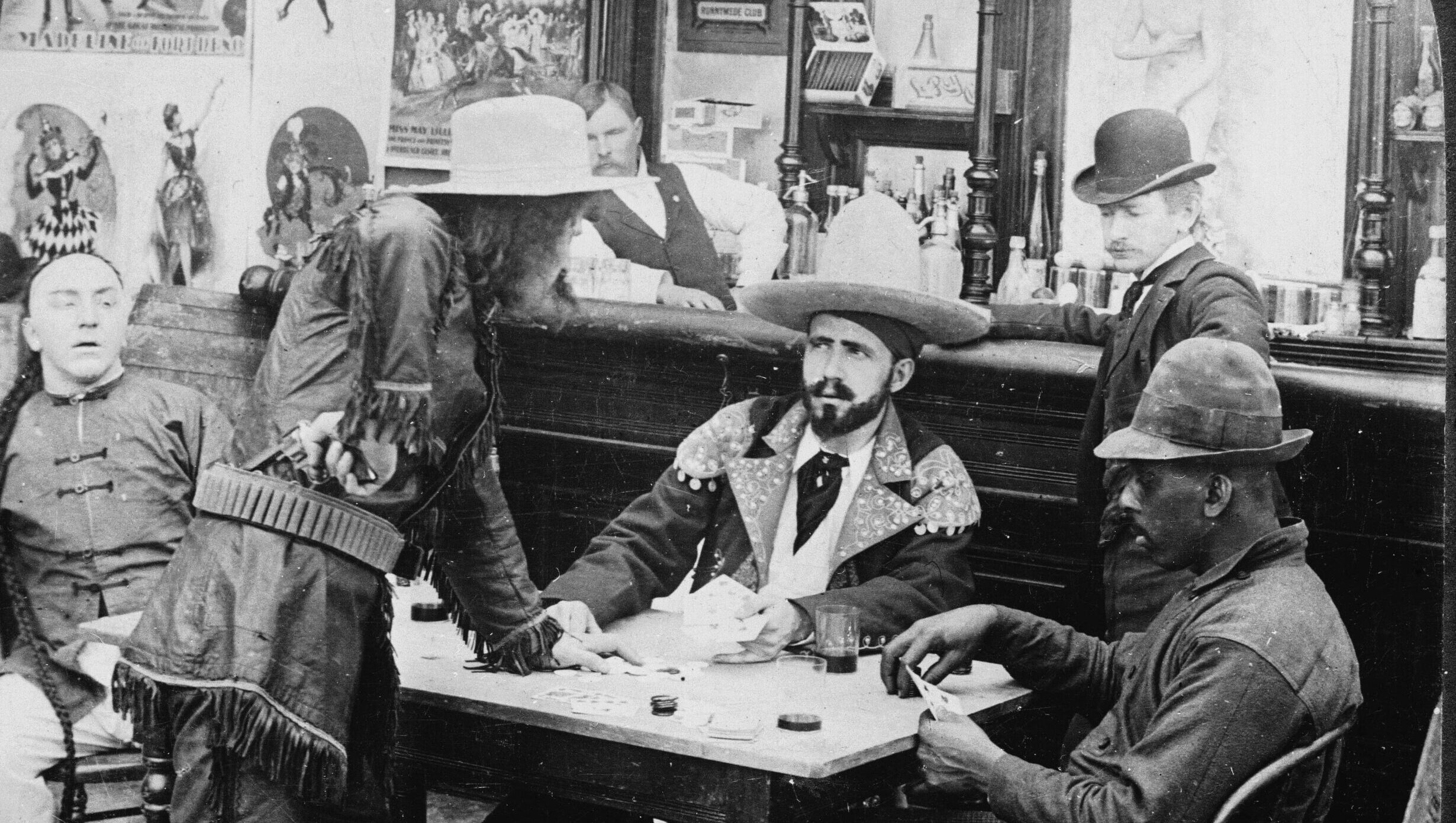There were some things that had to come in time
if they were to come at all
—The Ambassadors
I
By the third day out, they’d noticed each other,
and noticed each other noticing.
Each knew the other was at last, after the long years,
one on whom nothing was lost.
She saw the deep pinch-marks at the bridge of his fine
thin nose,
saw the eyes straining to be wry
in the face of privation,
heard him at next table warn a young stranger
of the folly of failing to live all one can,
and watched with him
while the young man stared back stupidly
with all the blankness of youth.
Two ravaged pairs of eyes had met at that moment,
then turned quickly away.
II
Out on deck, in a suit of deep brown,
he stood at the rail and stared eastward,
back toward all he had left,
back toward moments:
eating an omelette aux tomates with straw-colored Chablis
in sunshine across the Seine from Notre Dame,
no tomato ever as red, no sun ever as gold,
no flowing river ever as poignant;
scenting in fragrant evening the blooms
and the faint tigerish waft, so perilous, so alluring,
there in the mingled lamplight and shadow,
there in the garden of the formidable Gloriani;
gazing in the dim luster of Marie
de Vionnet’s drawing-room
at fine boiseries, medallions, mouldings, mirrors,
small treasures not numerous but
hereditary, cherished, charming,
and at Marie in the midst of them;
touching her shoulder so tentatively, weeks later,
in the same room, dimmer now, less lustrous,
listening to her weep
for Chad, who had told him in listless irritation
that he wasn’t tired of her, not a bit, really.
His rarest moments these—never
before such glistening promise,
never such defeats,
never such life.
To turn and face west and Woollett just yet
was a bit more than poor Strether could manage,
far harder to face, in fact, than even the memory
of that moment at the country inn,
when the shifting of a parasol in a rowboat
had told all that he had needed and feared to know
of the pair who had made him think himself
so belatedly and blessedly young.
III
From her deck chair, she would look up from her book
and watch him stare fixedly astern.
Now and again she would turn to the west,
toward the land she had left
more than twenty years before,
a place that knew neither Gardencourt nor Roccanera,
that knew neither the grace of sad
half-humorous acceptance
nor the vacuity of dreams.
Widowed in essence from the
earliest days of her marriage,
she was now, finally, widowed in fact,
the pallor in her thin face, the streaks
of gray in her dark hair,
heightened by the deep black of her dress.
She had reached, so hesitantly, for Gilbert’s hand
as in his last moments he had looked fixedly
toward his bedroom’s frescoed ceiling,
done two centuries before, as he had once told her,
“by some palely-talented dolt with pretensions,
but not done quite so dreadfully as to
keep me awake of a night.”
The slightest twist of his dry lips and
merest flinch at his wrist
as her hand drew near
had told her that even now what
he preferred still to grip
was his eternal sense of grievance.
America, he knew, had no patience for what ailed him.
In Rome, remnants of grandeur,
lovely accretions of ancient loss
made failure itself a thing of unassailable grace.
Why, then, sail west to all the glare and blare of doing
and leave the satisfactions of silence and shadow?
So, over the stale decades, Gilbert had stayed, and she with him.
Oh, yes, she’d often thought of home,
and often thought of it in fear,
dreading to find there, around every corner,
the girl who had read so many books
and had dreamed so many dreams of Europe and glory.
Now she was at last ready to face that girl,
to stare at her as fixedly as one might stare at the embers
of a failing fire in a large chilled house,
and muse on the general sadness of things.
IV
It rained all their last day at sea,
but shortly before dark, it eased to drizzle,
and each came out alone and stood at the rail,
staring into the shifting mist and
the slow churning below.
Not ten feet separated them, that and the silence.
They stood there in the chill and in their thoughts,
all the rest inside in the warm clatter of table chat.
After a time, the two turned to each other,
as if by common need.
Some words of the weather, the
pleasantness of the voyage,
the likely hour of arrival,
while their eyes met and held.
Their smiles, at first hesitant, grew warmer
in mutual understanding.
They knew and knew.
They might have walked the deck together
through the long evening, exchanged addresses
and sincere promises to meet in their homeland
and see what they could make of it together.
After all, he was but fifty-seven,
and she just in her forties,
and both knowledgeable of possibilities.
But they didn’t—for, after all,
each had seen too much of what comes of possibilities,
and there they were.
So, after they watched the sun sink wanly
through drizzle and mist, they
merely smiled once more,
wished each other a not uncomfortable night
and a not unhappy return.
Allen Stein is professor of English at North Carolina State University. Among his academic publications are works on Henry James, Edith Wharton, William Dean Howells, and Joseph Conrad, and he has had several short stories published.














